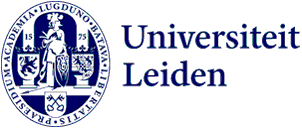Online Book Launch
Online Book Launch: Cremation in the Early Middle Ages
- Date
- Thursday 12 December 2024
- Address
- Online
You are invited to participate in the online book launch of Cremation in the Early Middle Ages edited by Femke Lippok and Howard Williams by Sidestone Press.
When, where, how and why did early medieval people cremate their dead? The brand-new edited collection published with Sidestone – Cremation in the Early Middle Ages – draws together the latest research and thinking on early medieval cremation practices. The book takes you on a journey through 19 chapters exploring cremation practices from the fifth to the eleventh centuries CE in Fennoscandia, the UK and Ireland, Frisia, Denmark, Germany, Belgium, and France. In this way, the book aims to be a central resource for anyone interested in early medieval cremations, or indeed funerary practices more generally. We invite you to join us for this online book launch which will include talks by the editors and authors as well as special guest talks by key experts in the archaeology of death and burial and an open discussion about the future directions of research on burning the dead in the early medieval period.
Running from 18.00-20.00 GMT+1 (17.00-19.00 GMT), Thursday 12th December. Click this link to book your spot!
The event will comprise:
18.00 – Welcome by the Director of the University of Chester’s Research Institute for Culture and Society, Tim Grady
18.05 – Introducing the Book: Cremation in the Early Middle Ages, Femke Lippok and Howard Williams
18.15 – Historiography and Archaeology, the Adventus Saxonum, and the Politics of the Early Middle Ages, James Harland
18.20 – Burning Questions: Learning to See Cremation in the Long Iron Age of Northern Britain, Adrian Maldonado
18.25 – Cremation in Context: Scientific Applications Going from ‘Meh’ to ‘Yeah!’, Barbara Veselka
18.30 – Cremation Rites in East-Central Europe from the 6th to the 9th century AD. A Comprehensive but Brief Overview, Jiří Macháček
19.00 – Round Table: Fresh Perspectives and Future Directions for Research, All Authors
19.50 – Closing Remarks, Frans Theuws
